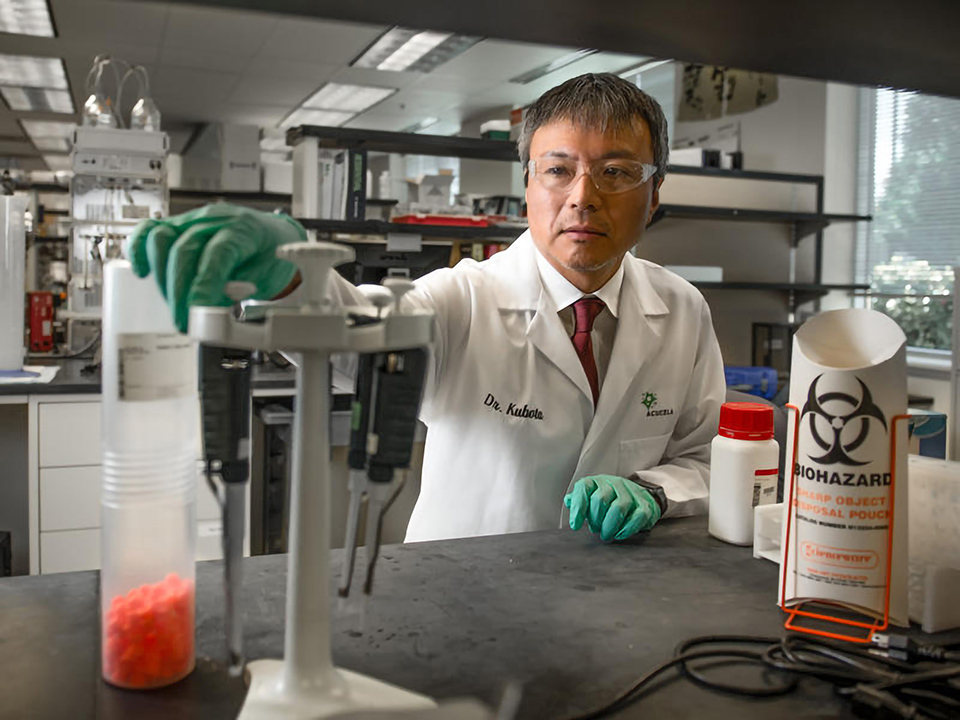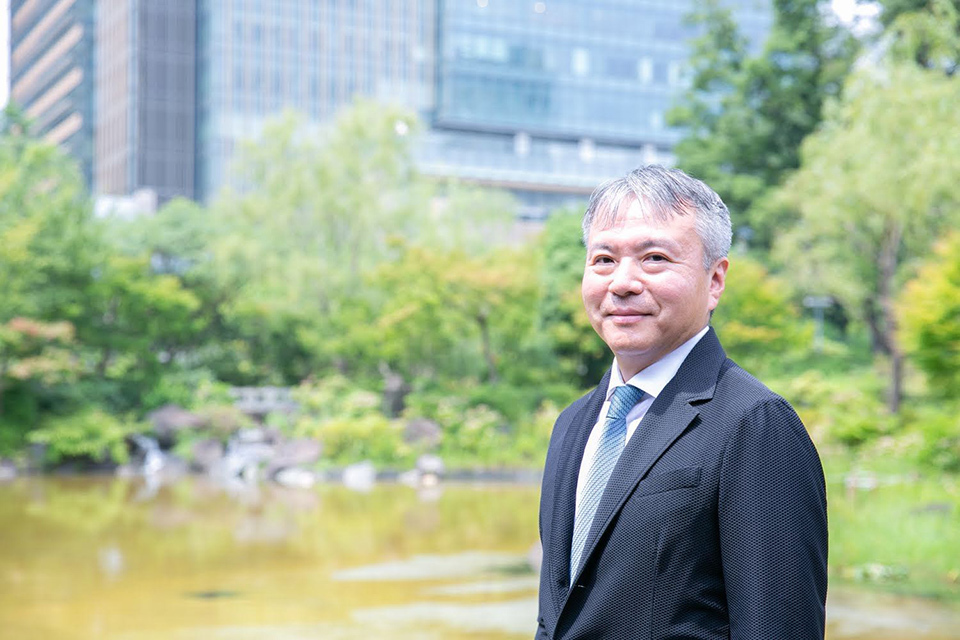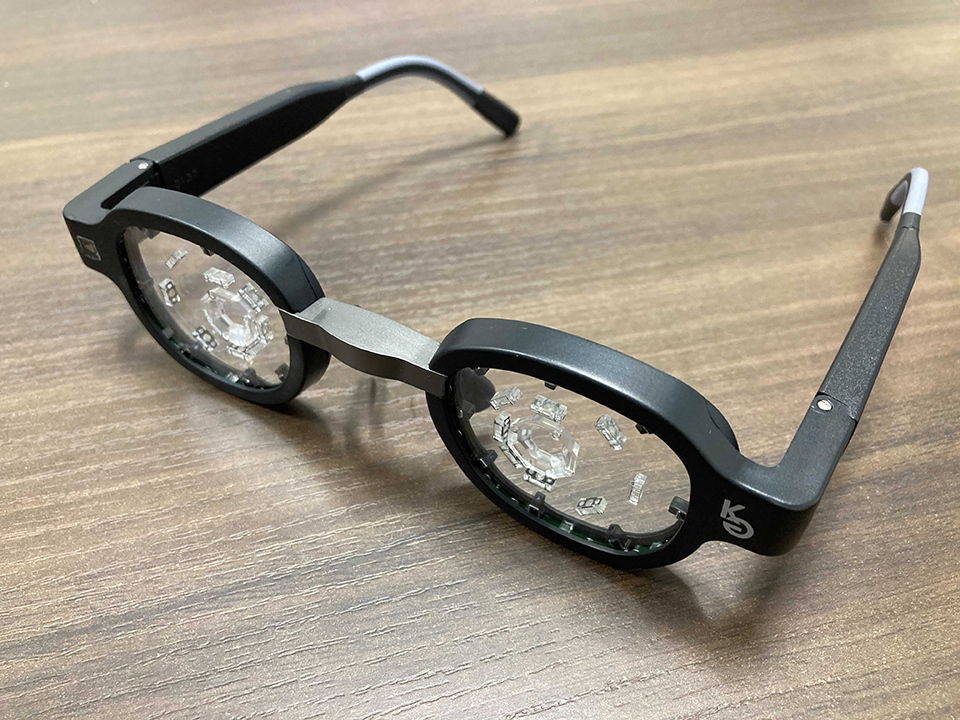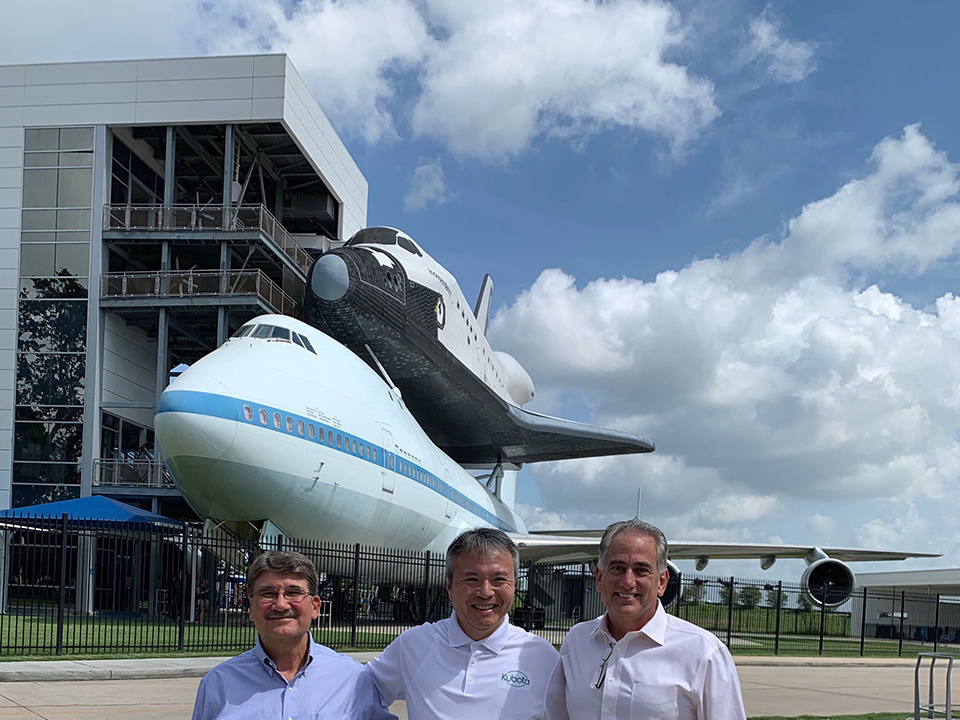As people age, many experience eye diseases, which in the worst-case scenario can lead to blindness. Helping to reduce this risk is a former ophthalmologist who set his sights on launching a venture into unique and unparalleled research. His team is currently developing a glasses-type device that aims to treat and control the progression of myopia as well as a diagnostic device for eye diseases common among astronauts. So, why is it that this eye specialist continues to take on the challenge of curing eye diseases with his venture company?

“The reason why I can keep on trying in fields in which results are hard to achieve is that I enjoy the daily process of trial and error with my colleagues,” explains Kubota.

KUBOTA Ryo, M.D., Ph.D., an ophthalmologist as well as president and chief executive officer of Kubota Pharmaceutical Holdings. After many years of research and through his experience discovering the causative gene of glaucoma, Kubota learned the importance of persevering without ever giving up.
The great inventor Thomas Edison once said, “I have not failed. I’ve just found 10,000 ways that won’t work.” Today there are people who, like Edison, continue to strive—unafraid of failure—toward their goals. One of them is KUBOTA Ryo, president and chief executive officer of Kubota Pharmaceutical Holdings Co., Ltd., who aims for a “World Without Blindness.”
Kubota first made a name for himself as an ophthalmology researcher. In 1997, he discovered myocilin, one of the genes responsible for glaucoma, a major cause of acquired blindness. At that time, genome research was becoming increasingly popular, with a growing belief that all diseases could be understood and treated. Kubota, like everyone else, believed this; having discovered the causative gene for glaucoma, he anticipated its eradication. Yet, even though the cause of the disease could be identified, no cure could be found. After discovering myocilin, Kubota, wanting to treat patients himself, turned to the profession of health care. However, desiring to find a way to cure more patients from blindness, he journeyed to the United States in 2000 to embark on the path of research once again.
While at the University of Washington in 2002, he established the venture Kubota Vision Inc. (formerly known as Acucela Inc.) based on his own research on cell-based screening technology. The company worked on developing a new drug for age-related macular degeneration, a common cause of blindness in Europe and the United States, but in the end, they did not get the results they were hoping for. “The probability of success in developing a new drug is said to be one in 30,000. I had a succession of failures for more than six and a half years before I discovered the causative gene for glaucoma, so I’m not so afraid of failure. But with the company consequently moving into a new phase, it was just a shame that I had to part ways with my colleagues, many of whom I had been with since the company was first created,” recalls Kubota.
So it was that in 2016 Kubota moved his base to Japan and made a fresh start once again, this time with Kubota Pharmaceutical Holdings. Current pipeline projects include Kubota Glass, soon to be released in Taiwan. These special glasses aim to treat and control the progression of myopia by creating the illusion of looking at distant objects using augmented reality, projecting images directly onto the retina. Besides the fact that more people are suffering from nearsightedness in recent years due to widespread use of smartphones and computers, it has become clear that myopia is the cause of various eye diseases. Therefore, Kubota thought that correcting myopia would be effective in preventing eye diseases that cause blindness.

Kubota Glass is a special pair of glasses that aims to treat and control the progression of myopia with their built-in mechanism to project an image onto the retina. The company received medical device registration approval in Taiwan. Global clinical trials are being planned from the latter half of 2022.

A photo taken at a meeting at NASA on the development progress of the diagnostic device for eye diseases that Kubota Pharmaceutical is jointly developing with the space agency.
The company also has worked to develop a compact optical coherence tomography (OCT) device that can be carried on the US National Aeronautics and Space Administration (NASA)’s manned mission to Mars. The compact binocular-like diagnostic device helps to determine eye diseases that affect many crew members on long-duration spaceflights, enabling on-the-spot AI diagnoses while transmitting data on the condition of the eyes from space back to Earth. The device is also being looked at for use in telemedicine on the ground, including on remote islands and in areas with sparse populations.
“It is unusual for pharmaceutical companies to develop equipment, but innovation is impossible unless we do something out of the ordinary. Most unconventional businesses fail, but a few of them become game-changers. In other words, venture companies and startups are the means for diversity, just like the small species that survived the era when even dinosaurs went extinct,” says Kubota. His tirelessly pursued efforts may finally come to fruition in Japan, a country focused on carving out its future through the power of science, technology, and innovation.





























